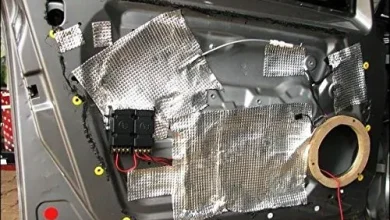Top 10 Best Car insurance Companies Ontario (2024 Update)

Best Car Insurance Companies: A Comprehensive Overview
Choosing the right auto insurance provider can be a difficult task. Understanding the best car insurance providers can assist you in making an informed decision in the face of a plethora of choices. We’ll look at some of the best auto insurance providers, their offerings, and what sets them apart from the competition in this guide.

1. Geico
Overview: One of the biggest auto insurance companies in the United States, Geico is known for its low prices and great customer service.
Key Features:
- Reasonable Charges: The premiums offered by Geico are among the lowest in the business.
- Easy to Use App: Policy management, claim submission, and roadside assistance are all accessible through their mobile app.
- Discounts: Geico offers discounts for safe drivers, military personnel, and federal employees, among others.
2. State Farm
Overview: State Farm is a well-known brand in the insurance industry that provides a wide range of individualized coverage options.
Key Features:
- Individualized Assistance: State Farm offers customized insurance solutions through local agents.
- Options for Extensive Coverage: They provide rideshare insurance and coverage for rental cars among other add-ons.
- Solid Monetary Dependability: State Farm is able to pay claims when they need to because of their solid financial reputation.
3. Progressive
Overview: Progressive is well-known for its novel approach to auto insurance, which includes distinctive features and adaptable options.
Key Features:
- Give your price tool a name: Customers are able to find coverage options within their budgets thanks to this feature.
- Snapshot Software: Moderate’s use based protection rewards safe driving propensities with limits.
- Extensive variety of Limits: Discounts are available to customers who bundle policies or go paperless, among other things.
4. Allstate
Overview: Another well-known insurance company is Allstate, which is known for its excellent customer service and wide range of coverage options.
Key Features:
- Options for Comprehensive Coverage: Coverage options from Allstate include gap insurance and accident forgiveness.
- Neighborhood Specialists: Allstate, like State Farm, has a network of local agents who can provide individualized guidance and assistance.
- The Drivewise System: This gives discounts and cash back for safe driving.
5. USAA
Overview: Due to its exceptional service and coverage, USA is the best option for military personnel and their families.
Key Features:
- Exclusivity: USAA only offers specialized products to veterans, members of the military, and their families.
- Reasonable Charges: USAA is well-known for offering some of the lowest premiums.
- Solid Client assistance: Customer satisfaction is consistently high for the business.
6. Farmers Insurance
Overview: From basic liability policies to comprehensive ones, Farmers Insurance provides a comprehensive selection of coverage options.
Key Features:
- Adjustable Approaches: Customers can customize their Farmers insurance policies to meet specific requirements.
- Unique Extras: There are options like coverage for customized vehicles and insurance for ride-sharing.
- Strong Network of Agents: Farmers has a large network of agents who can help you in a specific way.
7. Nationwide
Overview: Nationwide is known for its commitment to customer satisfaction and wide range of coverage options.
Key Features:
- Review of On Your Side: This program assists clients with assessing their inclusion needs and change their arrangements appropriately.
- Discounts for bundles: Bundling auto, home, or other insurance products can save you a lot of money with Nationwide.
- 24/7 Support for Customers: Support for policyholders is provided round-the-clock as part of their commitment to customer service.
8. Liberty Mutual
Overview: Liberty Mutual is a prominent player in the auto insurance industry that is renowned for its extensive benefits and coverage options.
Key Features:
- Customized Inclusion: Freedom Shared offers a scope of adaptable strategies to meet different client needs.
- Special discounts: They offer a variety of discounts, including ones for people who drive safely and own hybrid vehicles.
- Excellent App for Mobile: Access to claims and roadside assistance as well as simple policy management are provided by their app.
9. Travelers
Overview: One of the oldest insurance companies in the United States, Travelers has a strong reputation for dependability and customer service.
Key Features:
- Assortment of Inclusion Choices: They have options like classic car insurance in addition to standard coverage.
- Great Savings: Travelers offers numerous discounts to customers who drive safely, have multiple policies, and have good credit.
- Dependable online tools: Tools for managing claims and comparing policies are available on their website.
10. MetLife
Overview: MetLife’s diverse insurance offerings, which include comprehensive auto insurance, have earned the company a strong reputation.
Key Features:
- Discounts on multiple policies: MetLife gives customers who buy multiple types of insurance together discounts.
- Forgiveness for Accidents: They have arrangements that keep rates from expanding after your most memorable mishap.
- Excellent Management of Claims: MetLife has gained notoriety for productive case handling.
Conclusion
Picking the right vehicle insurance agency includes considering variables, for example, inclusion choices, client assistance, and estimating. Each of the aforementioned businesses has distinctive offerings and benefits that meet a variety of requirements and preferences. To find the best match for you, take the time to compare these businesses, read reviews, and evaluate your individual requirements.
FAQs
1. How do I choose the best car insurance company for my needs?
Take into account your budget, your coverage requirements, and the company’s reputation for excellent customer service. It can also be helpful to compare quotes from multiple providers.
2. What should I do if I’m unhappy with my car insurance?
Take into account your budget, your coverage requirements, and the company’s reputation for excellent customer service. It can also be helpful to compare quotes from multiple providers.
3. Can I save money on car insurance?
Yes! Discounts for safe driving, bundling policies, and taking defensive driving classes are common among insurers.
4. How can I file a claim with my car insurance provider?
Yes! Discounts for safe driving, bundling policies, and taking defensive driving classes are common among insurers.



